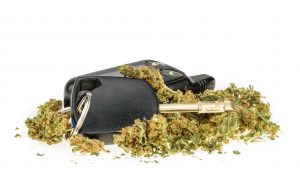 Ohio and Pennsylvania are two states which still prosecute drivers for DUI / OVI marijuana, even if the marijuana metabolites in the driver’s system are not affecting the person’s ability to drive. The Philadelphia District Attorney’s office recently announced it will not prosecute cannabis DUIs unless the driver has amounts of psychoactive THC which affect driving. Ohio prosecutors should consider implementing this policy.
Ohio and Pennsylvania are two states which still prosecute drivers for DUI / OVI marijuana, even if the marijuana metabolites in the driver’s system are not affecting the person’s ability to drive. The Philadelphia District Attorney’s office recently announced it will not prosecute cannabis DUIs unless the driver has amounts of psychoactive THC which affect driving. Ohio prosecutors should consider implementing this policy.
Articles Posted in DUI/OVI drugs
Using Crime Lab Reports In Ohio DUI / OVI Cases
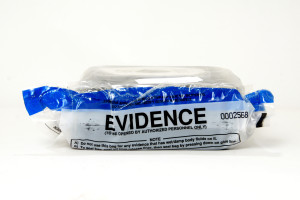 Although Ohio courtrooms may not seem as dramatic and intriguing as those on C.S.I., crime laboratory tests are regularly a part of Ohio criminal cases. In Ohio DUI / OVI cases, and in drug-related cases, crime lab technicians use scientific tests to identify drugs. The lab techs write reports about the analyses and sometimes testify at trial about the tests. A recent case in an Ohio appellate court discusses the detailed procedure for using crime lab reports in Ohio DUI / OVI and criminal trials.
Although Ohio courtrooms may not seem as dramatic and intriguing as those on C.S.I., crime laboratory tests are regularly a part of Ohio criminal cases. In Ohio DUI / OVI cases, and in drug-related cases, crime lab technicians use scientific tests to identify drugs. The lab techs write reports about the analyses and sometimes testify at trial about the tests. A recent case in an Ohio appellate court discusses the detailed procedure for using crime lab reports in Ohio DUI / OVI and criminal trials.
Tiger Woods DUI Arrest Spotlights Complicated Problem Of Drugged Driving

After Tiger Woods’ recent DUI arrest, he issued a statement in which he said, “I want the public to know alcohol was not involved. What happened was an unexpected reaction to prescribed medications.” Prescription medications, as well as non-prescribed drugs, account for an increasing number of DUI/OVI cases in Ohio and throughout the United States. Tiger’s situation very publicly spotlights the complicated problem of drugged driving.
Ohio Supreme Court Paves Prosecution’s Path For Drugged Driving Convictions
 Bad Facts Make Bad Law
Bad Facts Make Bad Law
If a police officer says a driver was under the influence of a drug, there is no need for testimony from an expert regarding whether the drug actually impairs driving. That is, essentially, the conclusion of the Ohio Supreme Court’s decision in State v. Richardson. There is a saying among lawyers: “bad facts make bad law”. The precedent created by this case may qualify as ‘bad law’, and the circumstances of the case definitely qualifiy as ‘bad facts’. Continue Reading
Ohio Drugged Driving Law: Must Be Nexus Between Drug And Driving Impairment
 The only presumption permitted in an Ohio DUI/OVI trial is the presumption the defendant is not guilty. In a case alleging drugged driving, the prosecution must prove the defendant ingested a drug, and the prosecution must prove the defendant’s ability to drive was impaired. Finally, as a recent case illustrates, the prosecution must prove causation: the impaired driving ability was caused by ingesting the drug.
The only presumption permitted in an Ohio DUI/OVI trial is the presumption the defendant is not guilty. In a case alleging drugged driving, the prosecution must prove the defendant ingested a drug, and the prosecution must prove the defendant’s ability to drive was impaired. Finally, as a recent case illustrates, the prosecution must prove causation: the impaired driving ability was caused by ingesting the drug.
Ohio DUI/OVI Marijuana Law Upheld After Half-Baked Attack
 An appellate case decided earlier this month illustrates how not to attack the constitutionality of a law. In the case of State v. Topolosky, the Tenth District Court of Appeals upheld Ohio’s DUI/OVI marijuana law. Coincidentally, just before the case was published, I wrote about this topic in this blog, and I spoke about this topic at two seminars. The defendant in Topolosky did essentially the opposite of what I suggested in the blog and presentations. The defendant used an argument destined to fail…with bad timing…without an expert witness.
An appellate case decided earlier this month illustrates how not to attack the constitutionality of a law. In the case of State v. Topolosky, the Tenth District Court of Appeals upheld Ohio’s DUI/OVI marijuana law. Coincidentally, just before the case was published, I wrote about this topic in this blog, and I spoke about this topic at two seminars. The defendant in Topolosky did essentially the opposite of what I suggested in the blog and presentations. The defendant used an argument destined to fail…with bad timing…without an expert witness.
Are Ohio’s DUI/OVI Marijuana Laws Constitutional?
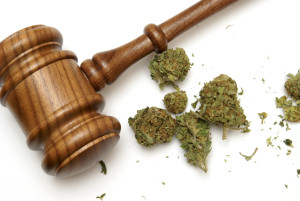 Issue 3 went up in smoke last week, so it’s still illegal to use marijuana in Ohio. It’s also illegal to operate a vehicle under the influence of marijuana or with a prohibited level of marijuana metabolite in one’s urine. The last article in this blog addressed the duration of marijuana’s effects and the duration of marijuana’s detectability. The conclusion was marijuana effects last for two hours to five hours, but marijuana metabolites are detectable in urine for up to five weeks. With that backdrop, this article discusses whether Ohio’s DUI/OVI marijuana laws are Constitutional.
Issue 3 went up in smoke last week, so it’s still illegal to use marijuana in Ohio. It’s also illegal to operate a vehicle under the influence of marijuana or with a prohibited level of marijuana metabolite in one’s urine. The last article in this blog addressed the duration of marijuana’s effects and the duration of marijuana’s detectability. The conclusion was marijuana effects last for two hours to five hours, but marijuana metabolites are detectable in urine for up to five weeks. With that backdrop, this article discusses whether Ohio’s DUI/OVI marijuana laws are Constitutional.
Marijuana Metabolism And Ohio’s DUI/OVI Laws
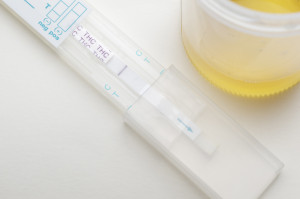 Next week, Ohioans will vote on Issue 3: a state constitutional amendment to legalize marijuana for medicinal and personal use*. If marijuana use is legalized in Ohio, more drivers will face charges of operating a vehicle under the influence of marijuana. Ohio’s OVI-marijuana laws raise many questions: How long does a marijuana high last? Does marijuana impair driving ability? Do blood and urine test results correlate with impaired driving ability? Are Ohio’s OVI-marijuana laws Constitutional? This article addresses the first question by discussing the duration of marijuana effects.
Next week, Ohioans will vote on Issue 3: a state constitutional amendment to legalize marijuana for medicinal and personal use*. If marijuana use is legalized in Ohio, more drivers will face charges of operating a vehicle under the influence of marijuana. Ohio’s OVI-marijuana laws raise many questions: How long does a marijuana high last? Does marijuana impair driving ability? Do blood and urine test results correlate with impaired driving ability? Are Ohio’s OVI-marijuana laws Constitutional? This article addresses the first question by discussing the duration of marijuana effects.
New Book Provides Readers With Valuable Information About DUI/OVI In Ohio
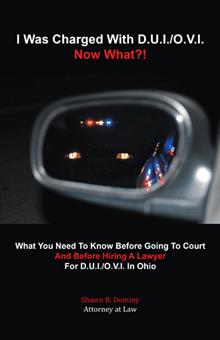 It won’t win a Pulitzer Prize, it will not be mentioned with the New York Times best sellers, and it will not be at the top of readers’ ‘wish lists’. In fact, most people may not find it very interesting. If you are charged with a DUI/OVI in Ohio, however, this book suddenly becomes a must-read. I’m talking about the new book: I Was Charged With DUI/OVI, Now What?!
It won’t win a Pulitzer Prize, it will not be mentioned with the New York Times best sellers, and it will not be at the top of readers’ ‘wish lists’. In fact, most people may not find it very interesting. If you are charged with a DUI/OVI in Ohio, however, this book suddenly becomes a must-read. I’m talking about the new book: I Was Charged With DUI/OVI, Now What?!
Drive High – Get A DUI
In January, Colorado became the first state to legalize recreational marijuana. In March, Colorado became the first state to televise entertaining public service announcements about the danger of driving under the influence of marijuana. The commercials are part of the Colorado Department of Transportation’s new campaign: “Drive High, Get A DUI“.  Although Colorado is one of only two states to legalize recreational marijuana, it is not the only state to criminalize operation of a vehicle under the influence of marijuana. Contrasting Colorado’s handling of DUI marijuana with that of Ohio illustrates the deficiencies in Ohio’s approach.
Although Colorado is one of only two states to legalize recreational marijuana, it is not the only state to criminalize operation of a vehicle under the influence of marijuana. Contrasting Colorado’s handling of DUI marijuana with that of Ohio illustrates the deficiencies in Ohio’s approach.
 Columbus OVI/DUI Attorney Blog
Columbus OVI/DUI Attorney Blog

